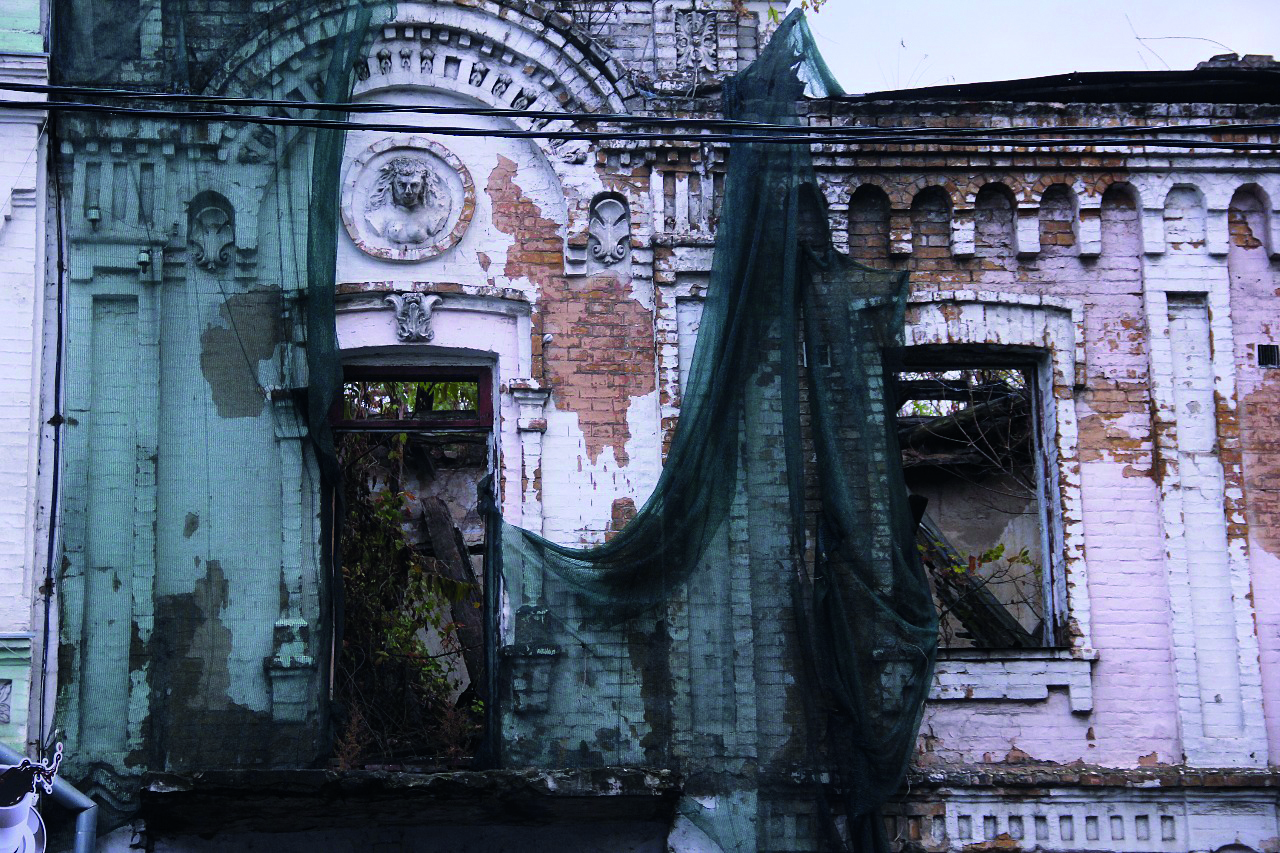What’s On at the Olympics?

 What’s On Reporter Lee Reaney was in Korea to take in all the action for our readers last month. It was his third Olympic Games and we asked him what advice he has for those looking to experience the Olympics for themselves. Here’s what he has to say.
What’s On Reporter Lee Reaney was in Korea to take in all the action for our readers last month. It was his third Olympic Games and we asked him what advice he has for those looking to experience the Olympics for themselves. Here’s what he has to say.
Were you one of the many Ukrainian fans that watched, electrified, as Oleksandr Abramenko became Ukraine’s first male Winter Olympic champion? Did you tell yourself that you want to be there in Tokyo in 2020 when Lviv athletes like Pavlo Korostylov, Kateryna Kryva, and Stanislav Horuna aim to become the country’s next Olympic champions? It’s easy enough to figure out what sports you want to see, when the dates are, and how to get to there. What most Olympic first-timers aren’t aware of are the Olympic Houses – Olympic-related venues where you’ll find parties, swag, athletes, and other VIPs. There are dozens of them located across the host communities, and they tend to fall under four broad categories: party venues, tourism expos, sponsor showrooms, and ‘homes-away-from-home’.
 What’s an Olympic House?
What’s an Olympic House?
At the core, each Olympic House is designed to be a place for the Olympic family and fans to congregate. First started by the Dutch with their Holland Heineken House at the 1992 Summer Games in Barcelona, the phenomenon exploded to over 50 in London in 2012 and nearly 20 in PyeongChang. They are a ‘home-away-from-home’ for athletes and their families, a place where fans can celebrate with their Olympic heroes, a way to travel to new parts of the world, or simply a place to party. They are found in some of the host communities’ poshest areas, like the Somerset House in London, Copacabana Beach in Rio, or the YongPyong Resort in PyeongChang.  There is no better place to catch an event if you don’t have a ticket – especially if the host nation wins a medal. If you time your visit right, you might even get to see a private medal ceremony and get your picture with the winner.
There is no better place to catch an event if you don’t have a ticket – especially if the host nation wins a medal. If you time your visit right, you might even get to see a private medal ceremony and get your picture with the winner.
There are all kinds of gimmicks and giveaways at the Houses, from ski lessons at Swiss House to eating poutine at Canada House to staying in a hotel room at Heineken House. Try to visit as many as possible during your visit, as some of the best stories from every Olympic experience comes from a visit, like when Dutch Olympic speedskating legend Sven Kramer and teammates injured fans during a celebration at Heineken House or when Slovene skiers joined me for a 06:00 dip in the Black Sea after a night at Swiss House. As their popularity increases, so too do their prices – many now have daily entrance fees. Regardless, if you’re going to the Olympics, you simply must visit them.
 Party Houses
Party Houses
Party Houses are sports pubs that turn into Olympic nightclubs and are one of the best places to meet other fans. You can dance with a French figure skater, down a beer with a Canadian hockey pro, or celebrate alongside an Olympic champion. Dutch medal winners are given a large plaque at Heineken House that is passed through the crowd (called “Legendary Lane”) to be placed on a wall with other medalists, while medal winners visiting Czech House are made to pour a pint of Czech Pilsner. More than just drinking and partying, venues organise events for visitors during the day, like dance lessons and autograph sessions.
 In Rio, one of the biggest draws was German House, located on picturesque Leblon Beach; while in Sochi, the hotspot was Swiss House, which drew over 300 000 visitors. Canada House was popular in Korea, thanks to its advantageous location just outside Olympic Park in Gangneung. But none have the reputation for wild parties as Heineken House. The first country to figure out the cash cow that Olympic Houses can be is still the one to beat. In Rio, visitors could watch all the action while lounging in a pool with a swim-up bar. The venue’s location along Korea’s popular GyeongPo Beach helped it keep its reputation as the most popular Olympic House in 2018. The venue hosts legendary evening parties – so popular that they charge up to 50 USD just to get in.
In Rio, one of the biggest draws was German House, located on picturesque Leblon Beach; while in Sochi, the hotspot was Swiss House, which drew over 300 000 visitors. Canada House was popular in Korea, thanks to its advantageous location just outside Olympic Park in Gangneung. But none have the reputation for wild parties as Heineken House. The first country to figure out the cash cow that Olympic Houses can be is still the one to beat. In Rio, visitors could watch all the action while lounging in a pool with a swim-up bar. The venue’s location along Korea’s popular GyeongPo Beach helped it keep its reputation as the most popular Olympic House in 2018. The venue hosts legendary evening parties – so popular that they charge up to 50 USD just to get in.
 Tourism Expos
Tourism Expos
Many Olympic Houses are designed to give fans an idea of what their countries are like, with a specific emphasis on drawing Olympic fans their way on their next vacations. Swiss House in PyeongChang, for example, offered a replica Swiss Village, including a hockey rink (they also had a skating rink in Rio!). The country is known for its skiing and you could hire a Swiss ski instructor for the day to teach you how to do it right. Fans watched Usain Bolt win medals while dancing reggae at Jamaica House in London, learned about camel racing at Qatar House, caught a K-Pop concert at Korea House in Rio, or tried poutine (fries with gravy and cheese) and ‘beaver tails’ (fried dough pastry) at Canada  House in Korea.
House in Korea.
Houses feature exhibits highlighting upcoming events or national brands. Japan House in Korea allowed you to photograph yourself scoring a ‘try’ to promote the 2019 Rugby World Cup while China House showcased the 2022 Winter Olympics. Beyond Dutch company Booking.com’s hotel room at Heineken House, airline Air Canada gave away free poutine at Canada House, while Swiss companies like Omega and Nestle sponsored Swiss House.
 Sponsor Showcases
Sponsor Showcases
Of course, Olympic sponsors like Samsung and Coca-Cola have their own houses and they are conveniently located in the heart of the Olympic Parks. Part-museum, part-theme park, and part-advertisements, they offer plenty of hands-on activities, like VR games at the Samsung House in Korea, photos with the Olympic Torch at the Coca-Cola Pavilion in Rio, or a “Chocalatorium” taste experience at the Cadbury House in London. Athletes visit these houses to sign autographs and there are lots of giveaways, including nice collector’s pins. The central location, free entrance, and free swag means you’ll have to wait in line awhile to get in. Still, they’re a great way to spend an afternoon – especially if you have children.
 ‘Homes-Away-From-Home’
‘Homes-Away-From-Home’
Heineken House was first designed as a place where athletes and their families could celebrate together with their fans and many houses continue to be true to this mission. Many countries now base their Olympic Committee offices at their houses and have special places for their own media, Olympic officials, and athletic staff. Some, like American House, are closed to the public. Others, like Casa Italia in Korea, are only open to the public on special occasions. Others still, like Czech House in Korea or Austrian House in Sochi, have floors specifically for athletes and their friends and families.
 Houses show feeds from their local country broadcasters, which can be a big draw. So if, like in Sochi, national channels are showing the biathlon race when the Canadian hockey team is playing, you can always head to Canada House to watch the Canadian team play. The combination of local fans, local food, and local TV make the houses a ‘home-away-from-home’ for athletes and their families. This makes them the perfect place to hear stories of how the athletes made it to the Olympic Games. Or to make your own stories, like jumping into the early morning sea with a couple of crazy Olympians.
Houses show feeds from their local country broadcasters, which can be a big draw. So if, like in Sochi, national channels are showing the biathlon race when the Canadian hockey team is playing, you can always head to Canada House to watch the Canadian team play. The combination of local fans, local food, and local TV make the houses a ‘home-away-from-home’ for athletes and their families. This makes them the perfect place to hear stories of how the athletes made it to the Olympic Games. Or to make your own stories, like jumping into the early morning sea with a couple of crazy Olympians.




Lee Reaney is first foreigner to receive Olympic accreditation from the National Olympic Committee of Ukraine.











